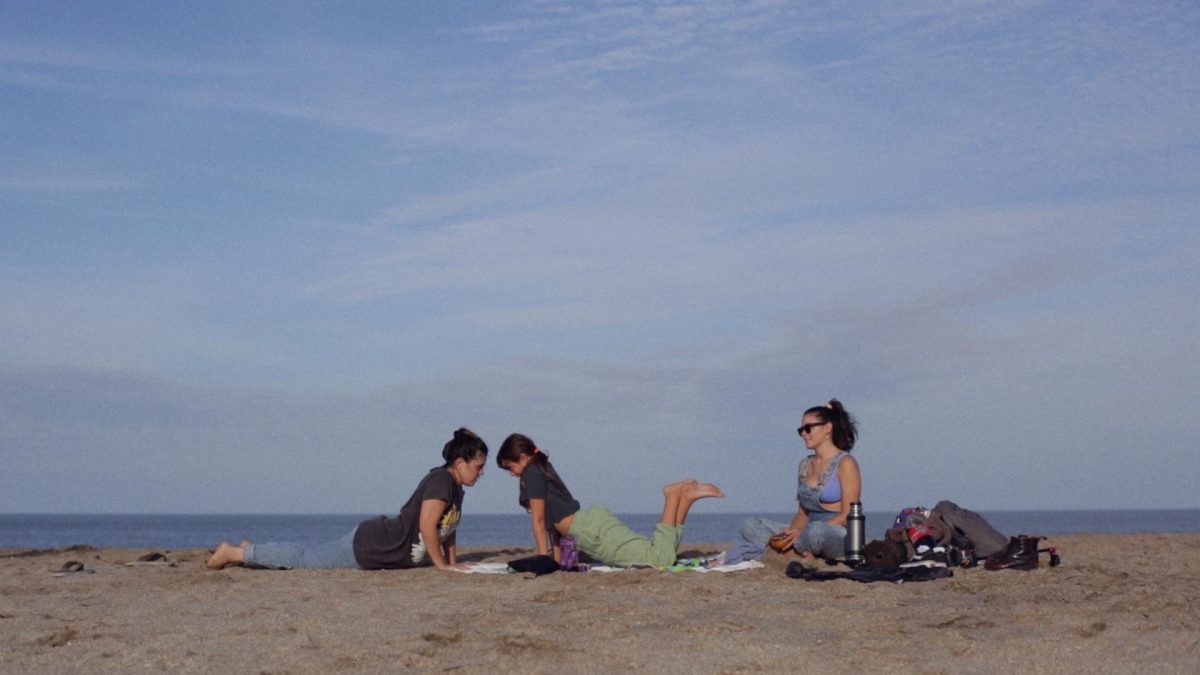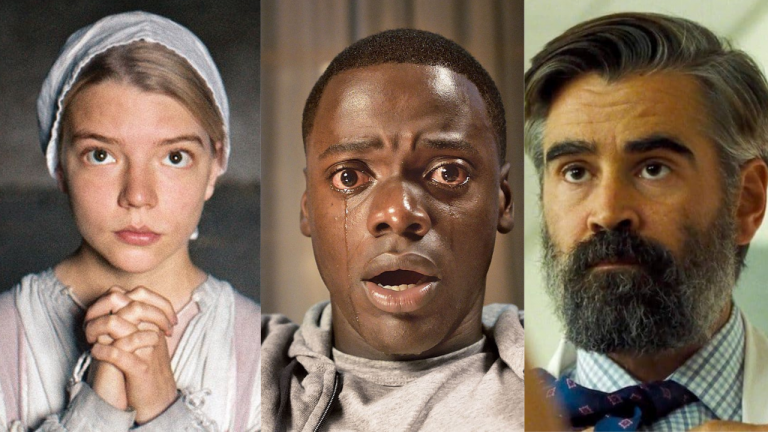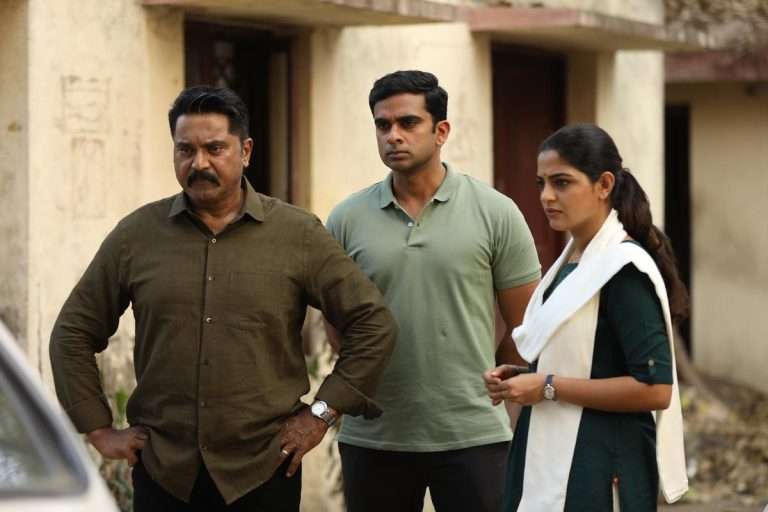María Silvia Esteve’s “Mailin” (2025) takes the bare bones of a trauma-memoir and hews them into an unforgettably piercing reckoning. It’s a film of strong echoes and sharp admissions, one turning to the past and hauling through the bramble of memory. Its twine is mottled with confronting tormented, blocked-off sections of one’s life. Opening in a sylvan setting, “Mailin” slowly unravels, a sense of idyll shattering as a saga of horrific endurance spills out.
“Mailin” assembles its pained recollection in the form of a warped fairy tale. It takes after the contours of a bedtime fable told by Mailin to her daughter, which gradually darkens and reveals vicious, skin-crawling edges. It’s a creepy story spun on years of sexual abuse Mailin was subject to at the hands of a local Catholic priest, Carlos Eduardo José.
Unnerving epiphanies slice through an aesthetic crenelated with gaping red holes. The middle of the screen ruptures. Mailin assumed she had shuffled out and kept in abeyance her simmering trauma. But it welled up after her daughter, Ona, was born. The sensations of disgust Mailin has felt in her skin have always been there.
A swimming pool is at the centre of it, calling forth again and again acute discomfort from the tunnels of private memory. It’s a splintered form Esteve adopts, the reminiscences breaking down into disorienting visual puddles. The sky, the scenery is rent in abstract asides. Occasionally, Mailin directly looks at us, disjointedly hemmed in by testimonies of making the Church pay for the crimes of its priests. Mailin dredges through reserves of snowed-under memory, prising out moments and points where the eponymous figure sees eye to eye with her experiences.
Carlos Eduardo José inserted himself in the town and community as a reliable, generous guide. He exudes the deception of perfect, shimmering trust, a symbol of sanctity and goodness. But the bearings of a father figure that were wielded for many children are soon stripped away as disturbing memories gain primacy.
Christian symbols like the lamb that’s actually devil in disguise are invoked within drapes of a seemingly innocent fable that shades into sinister terrain. Carlos snatched, goaded several families into his unquestioning, obeisant possession, children towed away into his care. Mailin is just one of many. Driven by thoughts of her daughter, Mailin pursues making her attacker face elusive punishment.

“Mailin” is a work of great, harrowing personal excavation. Esteve has been filming with Mailin for eight years. The accruing of time is deeply felt in the humane, respectful gaze cast upon Mailin, shifting her from the mould of a survivor to a full-bodied individual with fractured comprehension. Through the film, Mailin works through abscesses of memory, things she has pushed away from reckoning and that which she must confront without apology or wavering.
She burrows through old VHS recordings in a desperate, flailing quest to locate a single image that could pin all the years of abuse. It’s a maze she wanders through. There’s the self-loathing, shame, the ugly and misleading weight of silence and denial within her own family and community. For the longest time, no space existed for Mailin to acknowledge, utter and process the brunt of abuse. Predators operate and are licensed to perpetrate, silently backed and condoned by institutions. It’s a wider culture that permits and enables horrors committed in full purview.
Mailin jabs at the normalisation of things and behaviour that should make anyone flinch, retract and protest. But so much passes muster in the garb of supposedly affectionate displays. The most terrible violations often get where they do because they haven’t been called out early, seen for what shape they could morph into. It’s compounded by systemic failure to address and exert justice, fuelled by skewed power equations.
Esteve retraces remembrance and accountability not just through Mailin, but also her mother Monica, her sister Michelle. Each gathers shards of the past, wrestling with the buried and viewing it under a sobering, guilt-flecked light. How could they have looked past such episodes? What role does conditioning, in how one paternalistically perceives certain institutions, play in muffling disquieting realisations? Michelle mourns not noticing what happened to her sister and is overtaken with crippling helplessness.
Esteve transposes these intimate dimensions with trials against Carlos. The proceedings aren’t visually registered, but the accounts of the women fill in the blanks. Justice keeps getting deferred, shunted by structural auspices in the Church that guard and immure assailants and disregard survivors by citing statutes.
Mailin fascinatingly flicks through oblique slants of memory, wound up in fear. Esteve keeps returning to constructs of a child’s imagination, tearing into fantasy. It is as if the film cannot visually hold together its initial conceptions from a child’s perspective as adult reappraisals take over and peep within gaps and fissures. The abstractions disfigure.
These are thorny tracts Esteve traverses, but she never papers over the tough ask of interpreting one’s raw, untended wounds. Mailin’s fight for justice is laced into a collective struggle, along with the others who Carlos preyed on. “Mailin” is a bristling collision of memory and imagination frayed by horror. Esteve finds lateral ways of coming to a person’s deepest recesses, laying it out with candour and immediacy.





![Heavy Trip [2018]: Fantasia Film Festival Review](https://79468c92.delivery.rocketcdn.me/wp-content/uploads/2018/07/Heavy-Trip-1-768x432.jpg)
![Family Dinner [2022]: ‘Tribeca’ Review – A Tense Horror-Drama That Tackles Body Positivity & Toxic Parenthood](https://79468c92.delivery.rocketcdn.me/wp-content/uploads/2022/06/Family-Dinner-2022-768x432.png)

